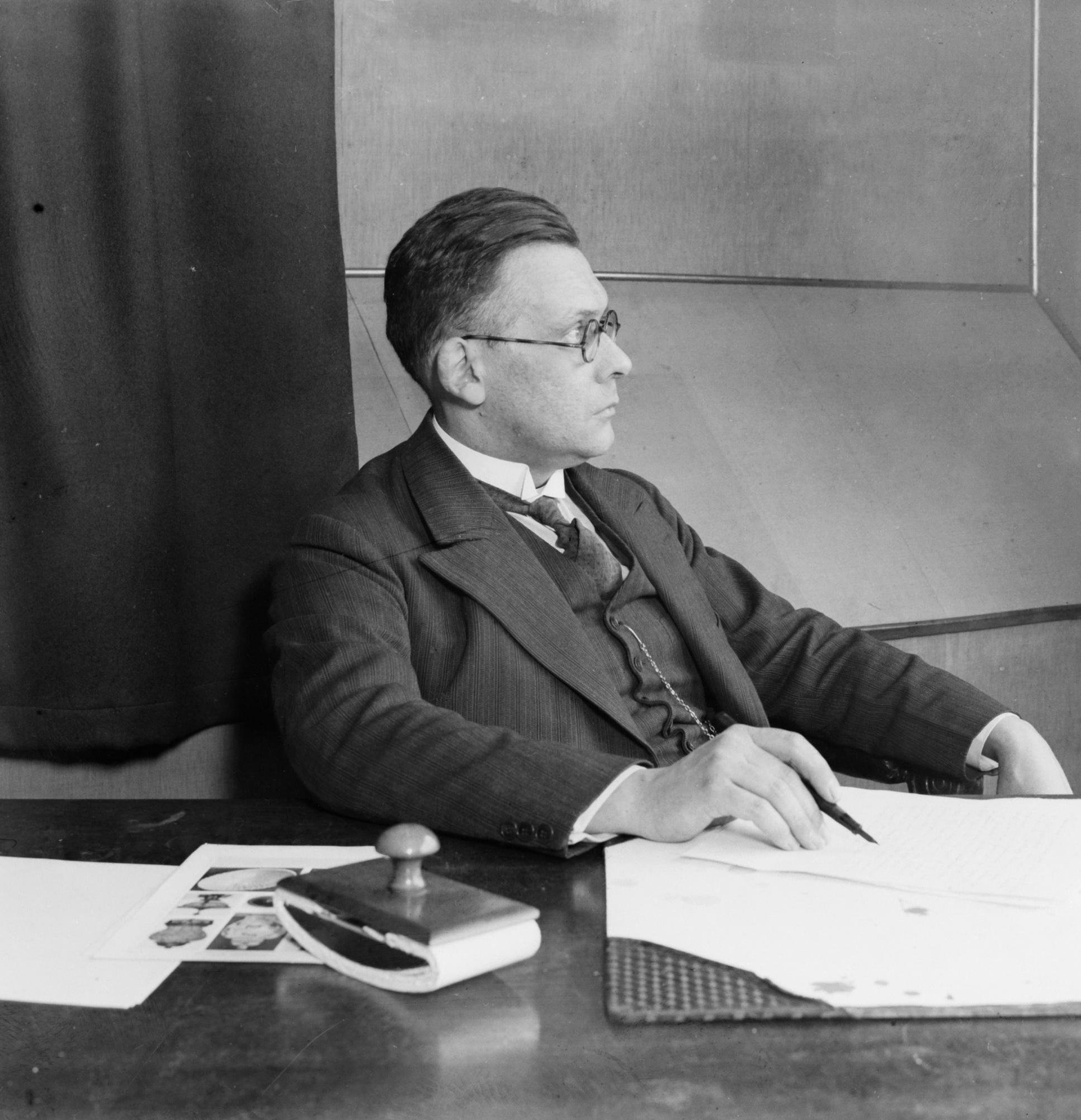Vries, Jan de, 1890-1964
Enlarge text Shrink text- His Studien over Forosche balladen, 1915
- Heldensagen, c1962:t.p. (J. de Vries, dr.)
- KB online cat., Nov. 8, 2004(hdg.: Vries, Jan de, 1890-1964; usage: J. de Vries, Jan de Vries; full names: Jan Pieter Marie Laurens de Vries)
Jan Pieter Marie Laurens de Vries (11 February 1890 – 23 July 1964) was a Dutch philologist, linguist, religious studies scholar, folklorist, educator, writer, editor and public official who specialized in Germanic studies. A polyglot, de Vries studied Dutch, German, Sanskrit and Pali at the University of Amsterdam from 1907 to 1913, and gained a PhD in Nordic languages from the University of Leiden in 1915 with great distinction. Subsequently, authoring a number of important works on a variety of subjects, de Vries was in 1926 appointed Chair of Ancient Germanic Linguistics and Philology at the University of Leiden. In subsequent years, de Vries played an important role at Leiden as an administrator and lecturer, while publishing a number of important works on Germanic religion and Old Norse literature. Combined with his university duties, de Vries was a leading member of the Maatschappij der Nederlandse Letterkunde and the Royal Academy of Dutch Language and Literature, led several civil organizations, edited a number of encyclopedias and magazines, and was instrumental in establishing folklore studies as a scientific discipline. De Vries collaborated with the Nazis during World War II. When democracy was restored in the Netherlands in 1945, he was imprisoned for several years, fired from his university, expelled from the learned societies in which had previously been a leading member, and deprived of the right to vote. He eventually received permission to work as a secondary school teacher in Oostburg. Living in isolation, and with his entire library having been destroyed during the war, de Vries committed himself to writing. In subsequent years, he authored a number of influential works on Celtic religion, Old Norse and Dutch etymology, and revised second editions of his works on Germanic religion and Old Norse literature. His works on these subjects have formed a central basis for modern research, and have remained standard texts up to the present day.
Read more on Wikipedia >
 Personality
Personality



